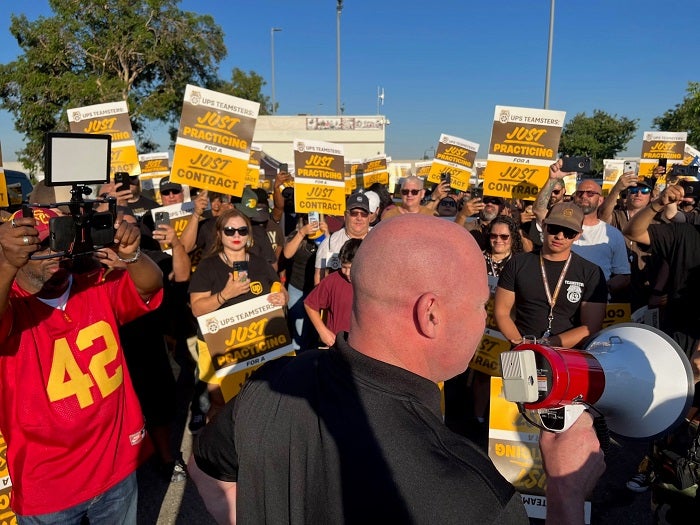On Wednesday, the Teamsters Union announced that United Parcel Service (UPS) had "walked away" from ongoing contract negotiations, a statement the shipping company contested, countering that it was the union who had halted talks. The two parties exchanged barbs as they strive to prevent a strike when the existing contract, covering about 340,000 workers, expires at the end of July.
This heated situation marks the first potential strike since 1997, a labor dispute that lasted 15 days, cost UPS $850 million, and drove customers to competitors. A new strike could risk millions of daily deliveries, and UPS may struggle to recover the volumes lost to rival FedEx (FDX.N), especially amidst weak e-commerce demand, warns Satish Jindel, president of logistics consulting firm ShipMatrix.
Union Fights for Worker Rights Amid Labor Shortages and Pandemic Aftermath

Photo by: teamster.org
Union demands primarily focus on wage increases. They are pressing for more rewarding contract offers for the workers who risked their lives to keep packages moving during the pandemic, a time that brought substantial profits to UPS.
Part of the negotiations included the Teamsters' plea for UPS to scrap a second classification of part-time drivers. The union criticizes the two-tier system as unfair, as it allows UPS to pay lower wages to weekend delivery drivers while doing the same work as higher-paid weekday drivers.
Aside from wage issues, the union is seeking protection from sudden technological advancements. They have managed to reach an agreement that would require UPS to negotiate with the Teamsters 45 days before introducing new technology like drones or driverless delivery vehicles.
Stalemate Over Pay Holds Up Negotiations
Negotiations reached a stalemate over pay-related matters. Teamsters' leader, Sean O'Brien, has been outspoken about his demand for substantial wage increases for all employee classifications. UPS has urged for a swift resolution and is ready to boost its industry-leading pay and benefits, but requires rapid progress to ensure certainty for customers and employees.
Despite union efforts, UPS insists its latest offer is the best they can put forward, and proudly affirms that their proposals offer the best pay in the industry.
A Strike: Likely or Avoidable?
While the majority of the contract has been agreed upon, tensions remain high, and the possibility of a strike looms. Although threatening to strike, the Teamsters are motivated to avoid a work stoppage, as it could have long-term consequences for UPS and, by extension, the workers they represent.
If negotiations fail, it remains possible that the White House could intervene under the Taft-Hartley Act to halt a strike if it's deemed too economically destructive. Given that UPS transports approximately 6% of the U.S. GDP daily, it's likely that the situation is being closely monitored.
Regardless, the potential strike will impact the entire parcel market. UPS handles about 20 million packages daily – nearly a quarter of all parcel shipments in the U.S. The repercussions would be widely felt, from online retailers like Amazon.com (AMZN.O) to hospitals and small businesses.
While a strike could be one of the costliest in recent history, reaching upwards of $7 billion for a 10-day halt, according to a think tank, it's too late for high-volume shippers to switch carriers before August 1st. FedEx or USPS, for example, simply can't handle all of UPS' volume. As such, all shippers are urged to stay abreast of the situation.
Want to get control of your shipments?
Join us and we'll do the heavy lifting for you